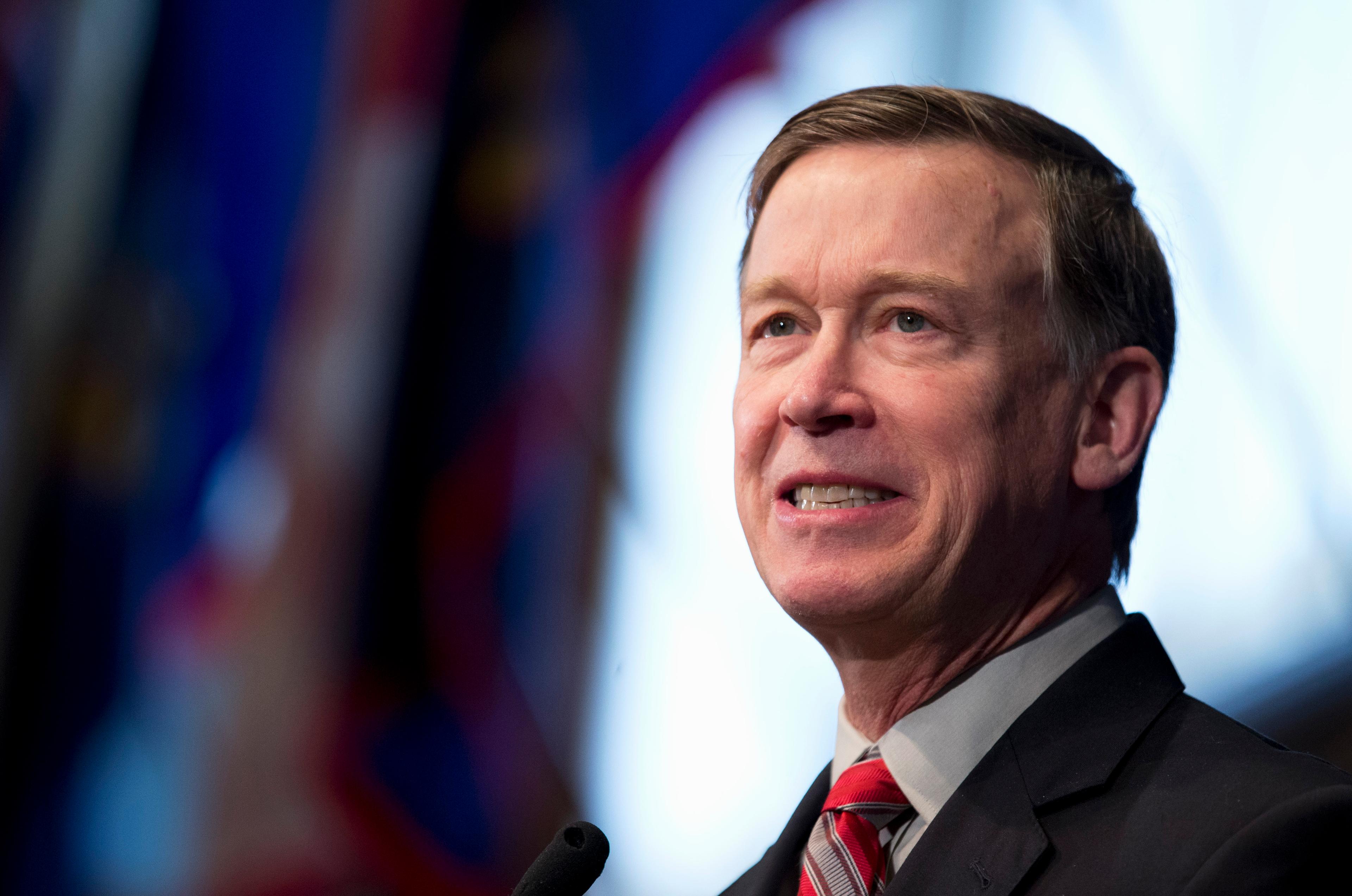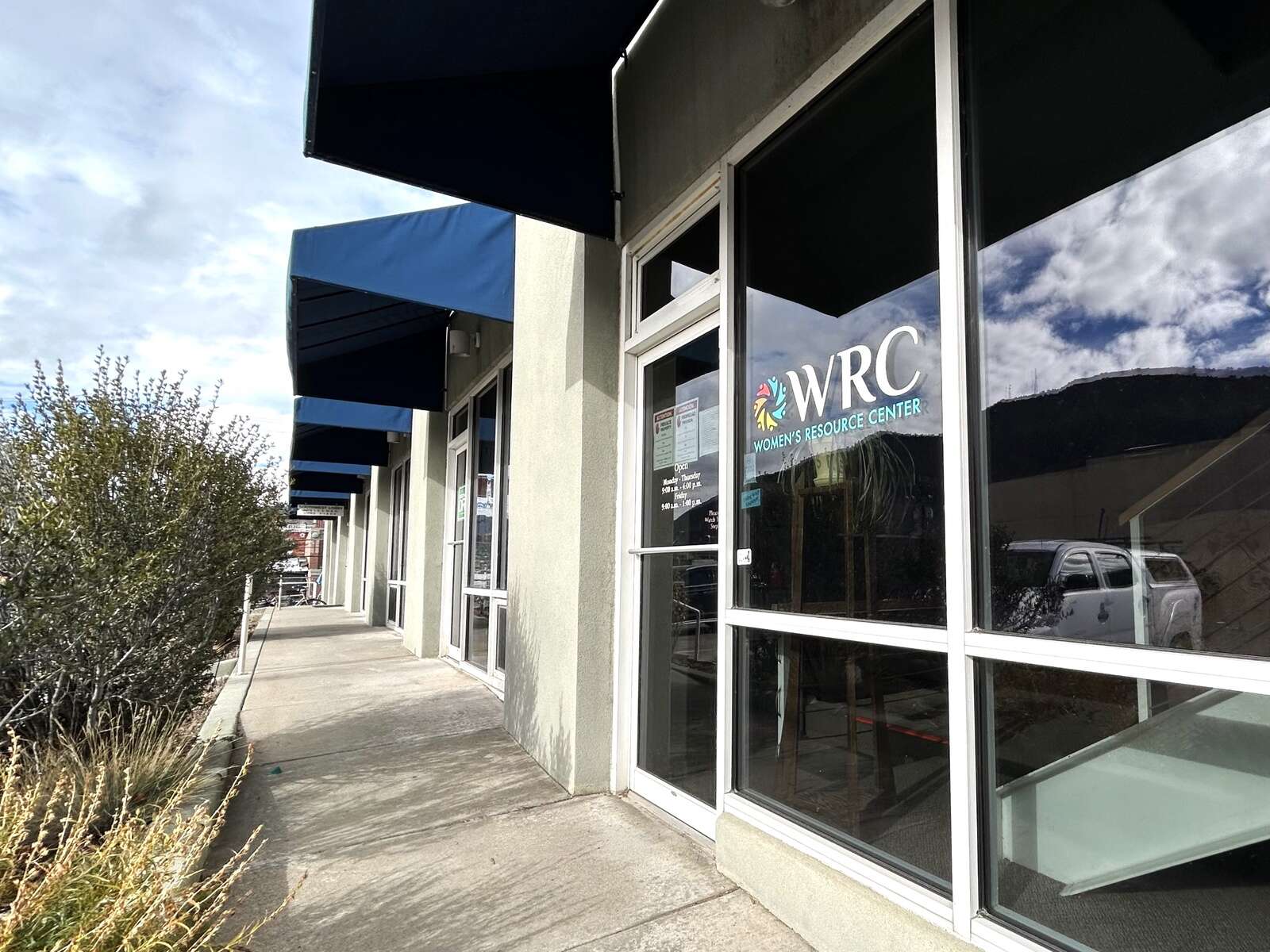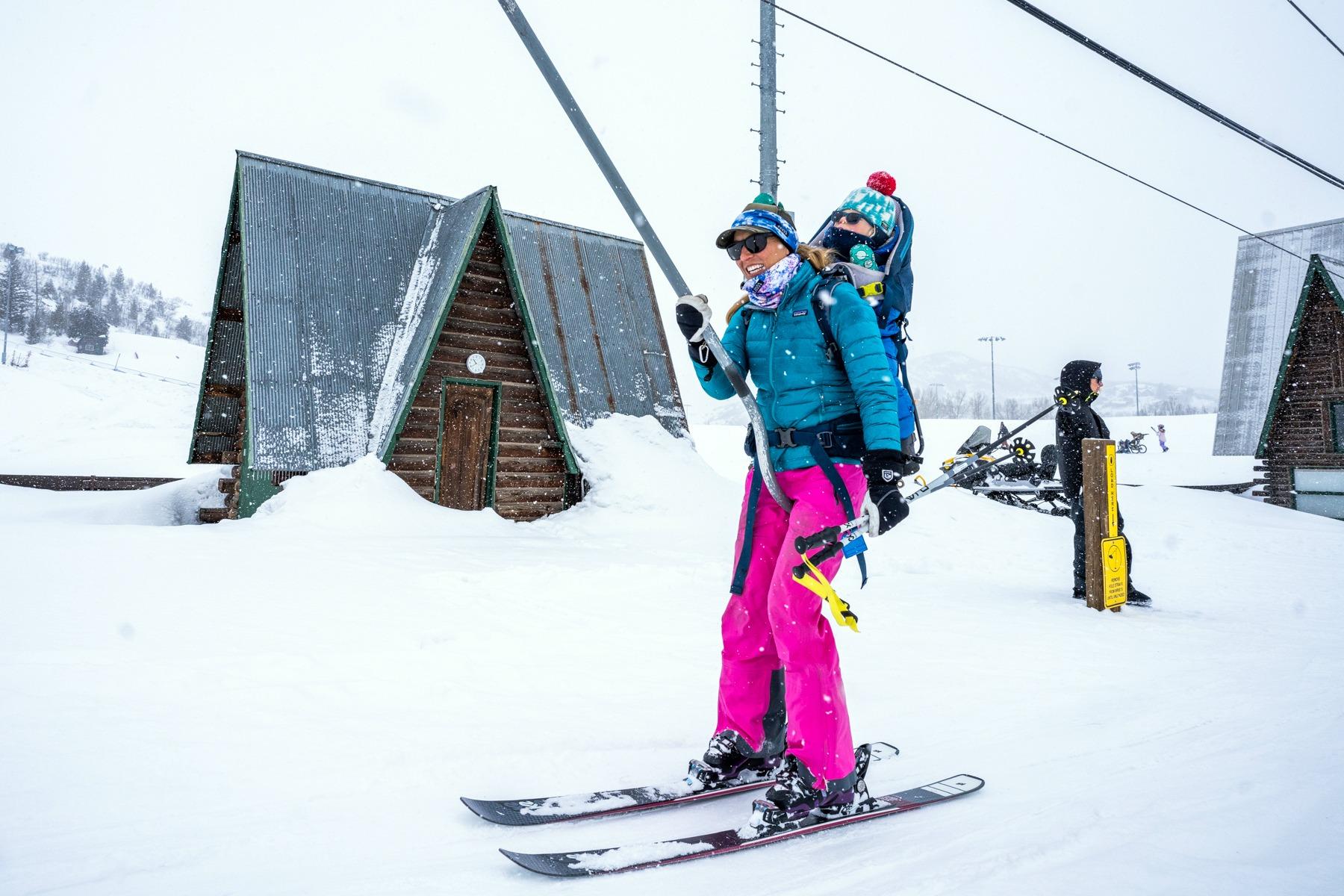

Colorado Gov. John Hickenlooper says he's leaning in favor of almost every ballot issue facing the state's voters this fall, from medically assisted death to increased tobacco taxes.
The only issue Hickenlooper continues to oppose is the ColoradoCare initiative, which calls for single-payer health care.
The governor also spoke about an executive order he and his staff are drafting to speed reductions of carbon emissions by the power industry. Hickenlooper said his plan is aimed at cutting those emissions as quickly as possible without raising energy costs by more than the rate of inflation.
"We think, working together, that we might be able to get where we can significantly clean our air without costing the consumers or businesses more money," he told Colorado Matters host Ryan Warner.
The proposal has drawn fire from some environmentalists who complain it doesn't go far enough and from other critics who complain Hickenlooper is exceeding his authority.
"It's all about the constitution and our separation of powers," State Sen. Jerry Sonnenberg, R-Sterling, said in a statement to Colorado Matters. "The legislature needs to be involved in these type of policy decisions." Hickenlooper rejected the argument, saying the legislature will be involved as the plan progresses.
Hickenlooper on the ballot issues:
- Creating a Colorado presidential primary in which Democrats, Republicans and unaffiliated voters could cast a ballot: "I support the presidential primary because I think it's good for Colorado. I think it puts us on the map and it gets more people involved in the primary."
- Allowing unaffiliated voters to vote in state primary elections. "I think I support this. ... Independent voters -- they're paying taxes, they're paying for these elections. They should be allowed to have a role in that. I think it makes perfect sense."
- Raising tobacco taxes: "The part that makes me sympathetic to that increase is the fact that there is literally no other way that gets people to quit smoking ... studies show for every 10 percent you raise the price you reduce the number of smokers by 4 percent. We're talking about saving thousands of lives."
- Raising the minimum wage to $12 an hour by 2020: "I'm sympathetic to it, but I haven't made up my mind on it." His concern is that the proposal gives employees who receive tips the full minimum wage, while the federal government adjusts the wage downward to account for tip income.
- Medically assisted death, allowing patients to get prescription drugs to end their lives: "Yes, I think the fact that you have to have multiple doctors sign off on this, that it's been used in Oregon and Washington without calamity and very, very few people take advantage of this ... I'd say I'm sympathetic to it and leaning towards supporting it."
- Removing an 1876 reference to slavery in the state Constitution, which prohibits slavery "except as punishment for a crime": "Sure. No problem. I support that."
Read the transcript
Ryan Warner: This is Colorado Matters from CPR News. I'm Ryan Warner. The governor is our guest today. And in our regular interview at the state Capitol, we start with something of a round robin. Where he stands on the rather hefty ballot issues Coloradans will vote on this fall. Governor, welcome back to the program. Gov. John Hickenlooper: Glad to be back. Warner: So you've already said no to ColoradoCare, the single-payer healthcare system. What about two measures that deal with elections: one to allow unaffiliated voters into state primaries and one to create a presidential primary and allow unaffiliated voters in that as well? Hickenlooper: I support the presidential primary because I think it's good for Colorado. I think that it puts us on the map, and it gets more people involved in the primary. Warner: Versus the caucus. Hickenlooper: Versus a caucus. And again, I enjoy the caucus, I've been going to the caucus a lot. But it's, the caucus, especially if a lot of people do get involved, like they did this cycle… Warner: It can get pretty harried. Hickenlooper: Yeah, it was very harried and very stressful. Warner: And as for unaffiliated voters in state primaries? Hickenlooper: I think I support this. If you think about it, independent voters, they're paying taxes that pay for these primary elections. They should be allowed to have a role in that. I think it makes perfect sense. Warner: How about a proposal to raise the tobacco tax by $315 million? Hickenlooper: I can see both sides. The part that makes me sympathetic to that increase is the fact that there is literally no other way that gets people to quit smoking, no better way, especially young people from low income backgrounds, than to raise the cost. Now do they need to raise it this much? You know the studies show that for every 10 percent you raise the price, you reduce the number of smokers by four percent. We're talking about saving thousands of lives. Warner: So you're sympathetic. Is that a yes? Hickenlooper: I think I'm going to think about it a little bit longer. Warner: An initiative to raise the minimum wage to $12 an hour, phased in through 2020. Hickenlooper: Yeah, that's again, I'm sympathetic to it. I haven't made up my mind on it. They're not increasing what's called the 'tip credit' and this is something that if you run an independent restaurant, you've got a restaurant downtown, I'm not talking about fast food places, but where you have tipped employees, they generally make more than almost anybody but the manager, right. If you're a busy restaurant, the bartenders, the wait staff, they'll make $20, or $25, sometimes 30 bucks an hour. This would give them a raise a well. And the way the federal government has historically dealt with this is they have what's called a 'tip credit'. And it means that for your tipped employees, you still give them a minimum wage, but it's half of whatever the minimum wage is. And I think that the people that put this together were lobbied intensely by the restaurant association but for, and I haven't had a chance to talk to them, but they, we're not willing to create a tip credit that would compensate. Again, most independent… Warner: So you're sympathetic but the lack of a tip credit makes you… Hickenlooper: Gives me a second thought. Warner: An initiative for medically assisted death. This would allow terminally ill patients to get prescriptions for drugs they could use to end their lives. Hickenlooper: Yes and I think the fact that you have to have multiple doctors sign off on this, that it's been used in Oregon and Washington without calamity, and very very few people take advantage of this... It's interesting that one of the studies we saw, I think it was 1,400 or 1,500 patients applied for the drugs because they were in such pain that they wanted to take their lives. And then more than a third chose not to. But having it there... Warner: Hmm. So you support the idea of this. Hickenlooper: I'd say I'm sympathetic to it and leaning towards supporting it. Warner: All right. Another. Hickenlooper: That's pretty good though. I mean this early in the election that's not bad. Warner: For John Hickenlooper this early in the election, it's pretty good. Hickenlooper: Moving forward. Yes. Warner: Another would remove an 1876 reference to slavery in the state constitution. That prohibits slavery, quoting here, "except as punishment for a crime." This was referred by the legislature. Hickenlooper: Sure, no problem. I support that. Warner: Let's talk about what's not on the ballot. So two proposals that failed to make it would have limited fracking. About 80,000 people signed petitions for each of those. What further steps do you think are needed to ease public concern on that issue? Where do you go from here? Hickenlooper: Well I think the dialogue that we've had over these past, it's been four years or five years, and I realize that there's a number of people that don't think it's gone fast enough or far enough. But I think we've made dramatic progress. We're the only state that has full-blown methane fugitive emissions, any methane that's leaking out, we make the oil companies go out and test multiple times a year to make sure there are no leaks. And they're doing it. And we are closing in those leaks. We are diminishing dramatically the waste. I think where you have drilling in proximity to neighborhoods, schools, hospitals, communities, and not just 500 feet but 1,000-2,000 feet. Warner: Because this was a major concern driving one of the ballot measures. Both of them really. Hickenlooper: Yeah and I think the ballot measures had, wanted to give the local community the right to ban fracking or ban drilling. I'm not sure that's a good idea unless you, through eminent domain or some process compensate people for what you're taking. But I think that you can reasonably look at things like sound, noise and appearances and in many cases, the responsible operators and I think most of the operators we have in Colorado are very responsible. But they are using electric rigs if they are within a quarter mile of a residential neighborhood so it's quiet. And you know how those towers, and they drill now, they'll only be there a month or a month and a half, but they'll put a cover over the tower so you don’t see all those lights. Warner: But do you think there's more room for improvement there? Hickenlooper: Yeah I think there's more discussion, more negotiation. I think what we're trying to do is create an interface and… Warner: What is that, an interface? Hickenlooper: An interface. A place, a framework, a structure, by which the local leaders can come together with whoever the operator is and negotiate with them in good faith to say alright, how can we get the hydrocarbon out of there, the natural gas or the oil, whatever you're pulling out, in such a way that it doesn't impact, or in a minimal way, it impacts our neighborhood. And I think those discussions, if you look at what those discussions used to look like five years ago, and what they look like now, it's totally different. Five years ago it was screaming and "we're not going to pay attention, we don't have to pay attention to you." Whereas now, pretty much with a couple of rare exceptions, pretty much always, the operators are sitting down with county commissioners and municipal leaders and saying "all right, what can we do and here's what we can do and how about if we do this and what if we do that and we won't drill over here if we can drill over there." Warner: Let's hear an election year question from a listener. Seth Levy is a professional driver and lives in Gypsum on the Western Slope. And Levy asks about the political makeup of the legislature. Right now Democrats control the state House and Republicans the Senate by a single vote there. Experts say there's a chance the Senate could go to the Democrats in November. And here is Levy's question: Seth Levy: If the Democrats regain total control of the legislature, what agenda items would you take up that were shelved after the Republicans got a majority in the state Senate? Hickenlooper: I would really push for a, either the hospital provider fee but some process by which we are able to take without raising taxes but take the tax revenue already raised and be able to use that for transportation infrastructure. Hopefully some of it would be available for higher education, for education. We're still way far behind in terms of what Amendment 23 says we should be spending on K-12 education and what we are. Warner: The hospital provider fee I'll say was a thorny issue in the last session. You wanted to take it out from under TABOR, the Taxpayer Bill of Rights and thus free up money for roads and other priorities as you say. Hickenlooper: It doesn't solve all our problems. I think we need to look for other resources to, and we are hundreds of millions of dollars a year behind in terms of transportation investments. And if you look at our neighbors in Utah, we've talked about this before, the hospital provider fee won't be the total solution but it will go a long way down the road to getting rid of some of the congestion and log jam that we see every day. Warner: There you have it Seth Levy. You've been working on an executive order to further cut carbon emissions from power plants. This is in line with the Obama Administration's Clean Power Plan. As you know, the U.S. Supreme Court put the president's plan on hold earlier this year after states, including Colorado, sued and last spring the legislature threatened to essentially eliminate a state agency if it kept working on the Clean Power Plan. So why draft this executive order now instead of waiting for these questions to be resolved? Hickenlooper: Well I think the Clean Power Plan might wind its way through court for years. Our goal has been from the beginning to say how can we get cleaner air without having a big jump in cost to our rate payers, to the businesses and the families that depend on electricity in Colorado. So back then, a year and half, two years ago, we thought well, for less than the cost of inflation, so in essence for the same cost you're paying for your power now, so maybe it would go up 1 percent or 1.5 percent, but essentially we believed that we could get significantly cleaner air and get to the goals of the Clean Power Plan without additional cost. So we just talked to the utilities, we talked to the energy companies and that seemed doable. So we said we're going to start putting that together in a plan. Well now I think the next step, and that's what the executive order is, hey, let's see how far we can go, how clean can we get our air, if we use that as our restraint. Warner: The draft order would cut carbon emissions from the power industry in particular by 35 percent. Hickenlooper: Wait, the executive order, that's a draft. So we don’t know if it's 32 percent or 35 percent or 40 percent. Warner: By 2030, compared to 2012 levels. Hickenlooper: Yep. So the goal is to say, all right, how far can we go. Is this the best we can do? Is there some moon shot out there where we think we can get even cleaner air within that same cost? The challenge here is all right, how do we go about making sure that everyone's on the same page, that we all agree that if we can get cleaner energy, for the same cost, shouldn't we go for it. Warner: This is related in particular to the generation of power. So can you give us just a few examples of how this would be achieved? Hickenlooper: Well there are a number of aging coal plants that are scheduled to be, at one point or another, moth-balled and some of them are much less efficient relative to the amount of power you're producing, they create a lot of pollution. Would it make sense to moth-ball those a few years sooner. There's a capital cost that somebody's put up for those plants so you've got to account for that, but even as you're doing, paying that down, some of the renewable, some of the natural gas is so inexpensive that you can do that without having to raise prices. If that's a possibility, I think it would be government malpractice, if you had the opportunity to have cleaner air for the same costs for you not to at least pursue it and look into it. Warner: We spoke with State Sen., Jerry Sonnenberg, he's a Republican from Sterling on the Eastern Plains and he says you are exceeding your authority. Sen. Jerry Sonnenberg: It's all about the constitution and our separation of powers. The legislature needs to be involved in these type of policy decisions and you can't take a page out of the Obama playbook and if you can't get something done through the legislature, then do an executive order. Hickenlooper: Well maybe Sen. Sonnenberg would be well served to call up. He's got my cell phone number and we can discuss that. We're not trying to take any pages from anybody's playbook, right. If we embark on this goal, I'm sure that we will need legislation to do it. We're not talking about circumventing any of the traditional processes. Warner: So you think that legislation might grow out of this? Hickenlooper: Oh I think absolutely. There would be parts of it that would be, I would assume to get to these goals, would be impossible without legislation. So if that's their major concern, they should be able to sleep comfortably tonight. Warner: Well another concern is that there will be a hit to consumers. Hickenlooper: That's why I said at the beginning and I will say again, the whole point of this is to say all right, let's look at and set inflation and say that's the cap as we create this plan and as we talk to the legislature. I'm not sure what Sen. Sonnenberg ... they seem to have this resistance to getting the air cleaner. Now I'm sure that's not the case but that's the way it sounds to me. I'm sure they don’t feel that way but if I'm talking about creating a plan that for the same costs we can actually have cleaner air, why, have we become so partisan that that's got to become a political issue? Warner: You're in a rare state of being whipped up on this. Hickenlooper: I'm not whipped up. I'm just, I mean here we are going out to the state of Colorado where we know we're at a higher elevation, the quality of our air matters more to us than to most other states. We think, working together, that we might be able to get where we can significantly clean our air without costing the consumers or businesses more money. Warner: One cost might be to coal miners, some of whom have already lost their jobs. Coal production has dropped 50 percent in Colorado since 2004. What specific steps is your administration taking to help those folks as their livelihoods disappear? Hickenlooper: The use of coal has been diminishing over the last decade, not just in Colorado, everywhere. And it's a market driven issue. Inexpensive natural gas, the drop in, if you look at wind energy, even solar energy, is becoming dramatically less expensive. And that's made coal, which is you know labor intensive to produce, and it is dirtier, but now it's also not even economic. Warner: And to the workers that are swept away in this trend? Hickenlooper: Well if a state mandate does accelerate the loss of an industry, I think the state should really take some responsibility and make sure there's resources for retraining. Warner: And what does that look like on the ground? Hickenlooper: Our Office of Labor and Employment is coming forward with an emergency rule that in the event of a localized or state-wide downturn in a particular industry, mass layoffs, something that threatens a region's economy, unemployment benefits will be able to remain in place as long as you are in a qualified retraining program. To a certain extent, when you have a downturn in any industry, there's always dislocation, right. Look at the oil and gas industry, just as a point of reference. In the last year and a half, we've lost thousands and thousands of jobs in the oil and gas industry but that's not the same as in the coal industry where the jobs are more localized in very small rural communities. And that's the other thing we're trying to do is figure out how can we help those impacted communities. Warner: And jobs that are quite lucrative, I'll just say that the president of the Colorado Mining Association has been quoted as saying that Colorado coal miners earn an average of $135,000 a year, that's in wages and benefits. So a key question is whether they can restore those levels of income. Hickenlooper: I think those levels of income are hard to restore anywhere. Warner: Finally, the political chattering class is talking about you more and more for a cabinet post. Hickenlooper: Which one? It's hard for me to see which one now. So, Department of the Interior, I think the environmental community, because I think I just finished defending fracking again, so I'm going to guess that's probably not going to go over very well. Which other ones are they thinking about? Warner: Gosh, well, I feel like I'm adding to the echo chamber. Transportation? Hickenlooper: I don't think, I think Ed Rendell who's the former governor of Pennsylvania is heading the National Transportation Infrastructure Commission. I think it's pretty likely that's kind of an assumption within the universe that that's where he's going to end up. Warner: How much time do you think you'll spend campaigning for Secretary Clinton this fall? Hickenlooper: Well, probably not, I mean I'm busy. So probably not that much. Warner: Have you carved out a certain percentage in your schedule or something? Hickenlooper: I haven't. When the opportunity, when I'm asked, usually we try to squeeze it into the existing schedule. But the truth be told over the last few weeks, I can, maybe once a week or something I'll go and usually it's a very brief, usually they have celebrities and kind of big deals that come in and do that kind of campaigning. Warner: So not you? Hickenlooper: Yeah. Exactly. So not me. Warner: I think that's what you were implying. I'm not putting words in your mouth. Governor, thanks for being with us. Hickenlooper: Always a pleasure. |
Related Links:









